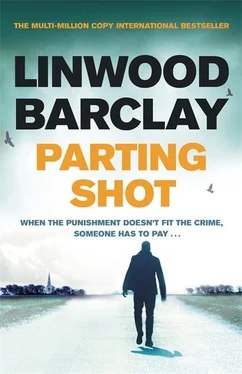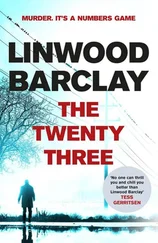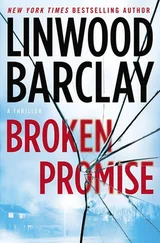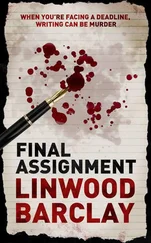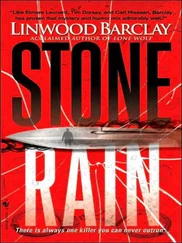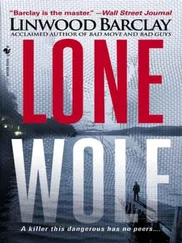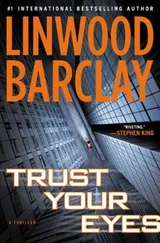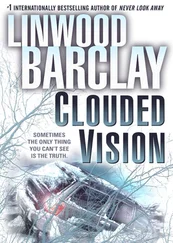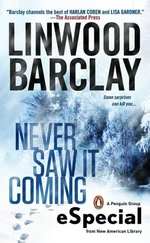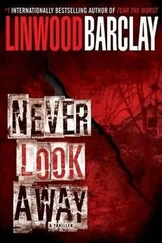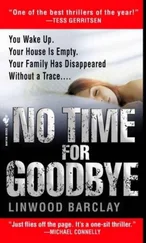“I have no idea,” Alastair said.
“Does he live here?”
“He does. But I’m not his minder. He’s a grown man.”
“May I come in, sir? Maybe you can help me clear up a few things.”
Alastair Calder hesitated, then opened the door wider. Duckworth thought he might be offered a seat in the living room, but it looked like a living room no one ever sat in. Vacuum cleaner tracks remained visible in the broadloom.
“This way,” Alastair said, leading Duckworth deeper into the house. He opened an oak door to a study. A desk dominated the room. Bookshelves, completely jammed, lined two walls. One wall was mostly window that looked out onto a treed backyard, and the final wall was reserved for framed photos and diplomas and various awards. There was one chair behind the desk, and another in front of it.
“Have a seat,” Alastair said. Duckworth sat. “Now what’s your business with my son?”
“When did you last see Cory?”
“I asked you what your business was with him.”
“And I asked you when you last saw him.”
Alastair Calder pursed his lips and drew in air through his nose. “Some time yesterday, I believe. We don’t check in with each other.”
“But you did say he lives here.”
“Yes.
“Who else lives here?”
“No one.”
“Just you and your son.”
“That’s what I said.” He sighed. “My wife died three years ago. We had two other children. They’re both married. My son is in Tokyo, researching ways to turn ocean water into drinking water. My daughter is a doctor. She’s in Europe, assisting in the refugee crisis, which is never-ending.”
“And Cory? What does he do?”
“He lives here,” Alastair said, a hint of contempt in his voice. “What do you want with him?”
“Do you know Dolores Guntner?”
His eyes widened. “Dolly?”
Duckworth smiled. “Yes.”
“Yes, I know her,” he said with a disapproving shake of the head. “My son is old enough to choose his own girlfriends, I am afraid.”
“So Dolores, she’s been seeing your son?”
“For some time, yes. Is this about Dolores? What’s she done? It wouldn’t surprise me in the least if she was up to no good. Do you know where she works?”
“A tattoo parlor.”
“Exactly. What else do I have to say? What’s she done?”
“She got herself killed, Mr. Calder.”
He sat upright in his chair. “She what?”
“She’s dead, sir.”
His face fell. “Dear God, what on earth happened?”
“Her death is being treated as a homicide.”
“You can’t be serious.”
“So I’m speaking with anyone who knew her. I’m told your son was her boyfriend, so he’d be at the top of the list of people I need to talk to.”
“You can’t think he’d have anything to do with this. He’s got his flaws, but he wouldn’t do anything like that.”
“But he may know something that would help me in my investigation. So let me ask you again. Do you know where he is?”
“I... don’t.”
“Do you anticipate him coming back any time soon?”
“I really have no idea.”
“You seemed to suggest earlier he doesn’t have a job.”
“Not... not currently.”
“I need you to call him and find out where he is. He must have a cell phone.”
“He does.”
Duckworth sat and stared at the man. Alastair, growing increasingly uncomfortable, finally reached for the phone on his desk. He hit one button, put the phone to his ear and waited.
He grimaced. “It’s gone straight to message.” He waited a second, then said sternly, “Cory, it’s your father. Call home immediately.” He replaced the receiver.
“He’s turned his phone off,” Duckworth said.
“Or he’s someplace he can’t get a signal. I’m sure that’s all it is. What happened to the girl? I demand to know.”
“What do you do, Mr. Calder?” Duckworth asked.
Alastair blinked, evidently offended that his demand was so quickly ignored. “I’m an advocate,” he said.
“Uh, an advocate for what?” Duckworth asked. “Or should I ask whom?”
“Both,” he said. “For decades, my wife Annette and I directed campaigns for countless individuals and agencies in areas of social justice, environmental protection, the wrongly accused and convicted, freedom-of-speech violations, the list goes on.”
“I see. How would you advocate, exactly?”
“Is this really important, Detective?”
“Just getting a sense of things, Mr. Calder.”
“Our company mapped out strategies, guided these organizations through courses of action. We got our start in advertising and public relations, so we were well grounded in the arts of persuasion and advocacy. We used those skills to make this a better world, rather than trying to sell things to people they probably didn’t need in the first place.”
“And you did all this from Promise Falls?”
“No,” he said. “From New York. My wife had roots in this part of the state, and when we retired — although it’s never been a complete retirement — we moved up here. That was seven years ago. But as you can see,” and he waved his arm across the study, “I’m still engaged in things.” He leaned forward, his arms resting on the desk. “Tell me my son is not in some kind of trouble.”
“I don’t know,” Duckworth said. “Why don’t you tell me about him.”
Another sigh. “He lives in the shadow of his brother and sister,” he said. “They’ve gone on to do great things, to make a difference. Like their parents. Cory has struggled in that regard.”
“How?”
“He... he looks for shortcuts. He’s impatient. The road to success is not a superhighway. It has plenty of bends and detours, and sometimes the bridge gets taken out in a flood. Many of us find another route, even if it takes us hundreds of miles out of our way. Cory turns the car around and goes home.” His face saddened. “Annette said I couldn’t expect him to have the same drive as the others. We had to let him be who he was, whatever that turned out to be. And that’s turned out to be a kid — a young man — who spends a lot of time on the computer, arguing with the world.”
“He doesn’t share the social conscience the rest of your family is known for?”
“I wouldn’t say that,” Alastair Calder said, with what sounded like just a hint of pride. “He does care about injustice. He’s on the web all the time, debating it with people. I’ll hear that damn tapping at three in the morning, and go into his room and tell him enough is enough. And he’ll tell me he just has to make one more point with some stupid idiot in Oklahoma or Dublin or Cape Town. Like he’s trying to win the planet over to his point of view. It’s like that cartoon of the person on the computer saying he can’t come to bed because someone is wrong on the Internet.”
“What sort of issues does he get fired up about?”
Alastair frowned. “Who knows. Sometimes I think he’s just looking for something to get riled about. He sees others jumping on some bandwagon and he has to get on too. He says this whole social-network thing is a way to get back at people.”
“Get back at people?”
He shrugged. “To get revenge. To make sure people get what’s coming to them. That’s never what my wife and I were about. We weren’t about revenge. We were always about justice.”
“Can you recall any specific instances?”
Alastair had to think. “Well, take that son of a bitch who attacked that retarded — sorry, my apology, we don’t say that any more, terrible word — that mentally challenged woman. He pretty much admitted he did it, but he got off. Cory thought that was pretty disgusting.”
Читать дальше
